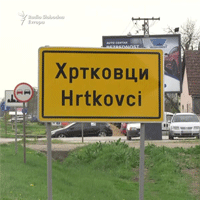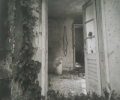With Appeal Judgment on Vojislav Šešelj, Justice is Partially Achieved

On April 11 2018, the Appeals Chamber of the Mechanism for International Criminal Tribunals (MICT) in The Hague passed sentence with its final verdict on the President of the Serbian Radical Party (SRS), Vojislav Šešelj, and reversed his acquittal by the International Criminal Tribunal for the former Yugoslavia Trial Chamber, sentencing him to 10 years of imprisonment for encouraging persecution (forced displacement), deportation, and other inhumane acts (forcible transfer), as crimes against humanity, and for committing persecutions in Hrtkovci in Vojvodina (violations of the right to security) as a crime against humanity. The Humanitarian Law Center (HLC) considers such a judgement significant, since in this way the victims of deportation and persecution in Hrtkovci almost 26 years ago have received judicial satisfaction; however, justice has only been partially satisfied, given the scope of the indictment against Šešelj, which encompasses the area of Sarajevo, as well as the municipalities of Zvornik, Nevesinje and Mostar in BiH, and Vukovar in Croatia.
Apart from the conclusions on Hrtkovci, the Appeals Chamber changed the paradoxical finding of the first instance verdict, according to which the Prosecution proved that “a widespread or systematic attack against the non-Serb civilian population in significant parts of Croatia and Bosnia and Herzegovina” took place between 1991 and 1993.
In the summary of the final verdict on Šešelj, it is stated that, on the basis of the available evidence indicating the scope of the crimes committed, “no reasonable trier of facts could conclude that there was no widespread or systematic attack on the non-Serb civilian population in Croatia and Bosnia and Herzegovina”. That such an attack on civilians had been made is clear from evidence showing that between November 1991 and October 1992, “Serb forces, including paramilitary groups and volunteers, committed the crimes of murder, torture and cruel treatment of non-Serb civilians, and plunder of private property at various locations throughout the municipalities of Vukovar, Zvornik, the wider area of Sarajevo, Mostar and Nevesinje “, according to the Appeals Chamber. Among these groups were the SRS volunteers, also known as “Šešelj’s Men”, whom Vojislav Šešelj and his party recruited and sent to the battlefield. The HLC recalls the findings of the Trial Chamber, which the Appeals Chamber did not dispute, that these units committed numerous crimes, including the killing of four Bosniaks in the Economija detention centre in Zvornik in May 1992, the killing of at least 40 Bosniaks at the Uborka rubbish dump near Mostar in June 1992, the killing of a Bosniak in the village of Lješevo near Sarajevo in June 1992, the torture and cruel treatment of 90 Bosniaks at the Vrapčici Stadium in Mostar in June 1992 and of a large group of Croats at Velepromet and Ovčara near Vukovar in November 1991 (see paragraphs 207 , 210, 213 and 216 of the Trial Chamber judgment). In the findings of the first instance verdict, however, which the Appeals Chamber has not reversed, it is stated that “there was no hierarchical link between the accused and the volunteers in the field” (see paragraph 241 of the Trial Chamber judgment). In addition, the Appeals Chamber accepted the Trial Chamber’s allegations that there was no joint criminal enterprise, while acknowledging the suspicion of the Trial Chamber that Šešelj could have been working on the achievement of the common purpose of a permanent and forcible removal non-Serbs from large parts of Croatia and Bosnia and Herzegovina, since he had had some disagreements with other participants in that undertaking, including Slobodan Milošević, Željko Ražnatović Arkan, Radovan Karadžić, Ratko Mladić, Biljana Plavšić, Milan Martić, Goran Hadžić, Veljko Kadijević, Jovica Stanišić and Franko Simatović.
About the connection between Vojislav Šešelj and his Serbian Radical Party with the units that committed the crimes and other participants in the joint criminal enterprise, information was given during the investigation by some insiders who were close to Šešelj during the war in Croatia and BiH and-or were part of the structure of his political party. Most of them, however, renounced their allegations in the courtroom, each of them in the same manner and stating the same reasons for such a decision. All this happened after Vojislav Šešelj had published data on the protected witnesses in his books, which resulted in his total of four years and nine months of imprisonment in the three contempt of court proceedings before the ICTY.
The ICTY filed an indictment for contempt of court (a confidential arrest warrant issued to Serbia in January 2015) against three other members of the Serbian Radical Party – Petar Jojić, Jova Ostojić and Vjerica Radeta – because they threatened and intimidated two witnesses, bribing and in other ways influencing them in order to elicit their consent to give up cooperation with the Prosecution or to become defense witnesses in the proceedings against Vojislav Šešelj. Serbia, however, refused to extradite the two indictees to the ICTY (Jovo Ostojić died in mid-2017), and the case was taken over by the MICT, so the MICT recently launched a procedure for considering the transfer of cases to the authorities of Serbia. The HLC considers that the state of Serbia is obliged to contribute to the clarification of the truth in this case – either by extraditing the two accused members of the SRS to the MICT, or by holding a trial in the case of a decision transferring the case to the domestic judiciary. This would undoubtedly contribute to understanding the reasons why the witnesses in the Šešelj case abandoned their previous statements.
Following the verdict of the Appeals Chamber, Vojislav Šešelj was sentenced as a war criminal, and as such he is a member of the National Assembly of the Republic of Serbia. The HLC asks the President of the Assembly of Serbia to decide on the termination of his mandate, as Article 88 of the Law on the Election of Members of Parliament stipulates a mandate should be terminated for a member of the Assembly who has been sentenced by a final court decision to a prison term of at least six months. It is especially paradoxical that someone like Šešelj, who was convicted of violating the right to the safety of civilians in the territory of the Republic of Serbia, is a member of the Security Council of the National Assembly of the Republic of Serbia
The HLC also feels obliged to point out that none of the highest state officials spoke to the public for two days after the judgment was pronounced, although the verdict imposes the obligation on state representatives to show at least a feeling of compassion for the victims, to start debating the role of the state of Serbia and to contribute to the prosecution of all those responsible for the crimes against Croats from Hrtkovci, as well as other Vojvodina villages such as Novi Slankamen, Kukujevci, Golubinci, Petrovaradin, Bač, Beočin, Morović and Beška.







